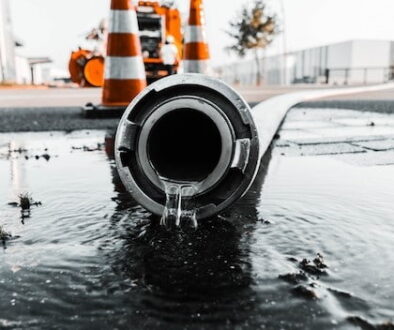How Often Should A Dryer Vent Be Cleaned?
Owning property means that you unfortunately need to accept the costs of maintaining it. It’s the least pleasant part of owning things. And maintenance includes things below the surface in places you can’t see, like in your dryer vents. How often should you hire someone for commercial dryer vent cleaning? The short answer is: “it depends”. Mostly on the size and volume of your operations.
If you’re running a business that regularly uses its dryers to clean uniforms and rugs, your volume might be fairly steady, and that means you can consult a service contractor to handle this on a schedule. Dryer vent cleaning is usually fairly quick and shouldn’t interrupt your service schedule much. If your property is a hotel with a much higher turnover service demand for bedding and towels, you might have to consider your volume carefully and schedule an extra cleaning around peak tourist travel times. Regular commercial dryer vent cleaning is crucial in any of those situations, but where it might be most important is in apartment buildings. If you own an apartment building, here are a few maintenance tips to help you determine your best commercial dryer vent cleaning schedule.
Restrict Smoking in Your Building
Smoking’s only flaw isn’t the lingering smell. When a dryer vent gets clogged, it gets clogged with thick, concentrated lint, hair, and other debris, all of which are very flammable. Smoking in your building increases the risk that a random live cinder makes its way near your interior vents, or even your exterior vents if your tenants smoke near those vents. Interior ignition fires are much more difficult to extinguish, and the repairs from damages can be very costly as a result. Regular commercial dryer vent cleaning can reduce these risks as well by ensuring that the clogs do not happen in the first place. Consult a local technician for their recommendations based on your building’s occupancy.
Laundry Room Cleanliness
If you manage a building where laundry rooms are shared by tenants, this is easy. Inspect each laundry room regularly to be sure it is free of any unattended household chemicals and that your washer and dryer machines are both clean. Check your filters and lint traps on your machines to ensure that your tenants are properly cleaning them after use. If you are not on site often, or if you are in a high-volume building, hire an HVAC crew to perform commercial dryer vent cleaning and regular inspections of your equipment. This might seem like an unnecessary expense, but it is much less costly than repairing and rebuilding your space when something goes wrong.
Listen to Your Tenants
Your tenants’ concerns are usually your first warnings of a problem. Clogged air vents can affect overall air quality in the building. If clothes are taking more than one cycle to dry properly, you may be losing energy due to a clogged drain. And while the tenant is likely complaining because they have to run two dry cycles and spend the extra few dollars, this might be a sign that your vents need to be cleaned. Commercial dryer vent cleaning is very reasonably priced, especially in comparison to the costs of repairing after the problem makes itself known.
However you keep in contact with your tenants, do so, and take their concerns seriously. Set up an email thread for maintenance, or even something as simple as a clipboard on the wall of the laundry room where someone can report any issues for you to review. A commercial dryer vent cleaning is often the first step to any dryer issue troubleshoot checklist.
Where It Really Matters: Your Bottom Line
As a property owner, you obviously want to keep your costs to a minimum. But in regards to your building’s internal workings, preventative maintenance is the best way to keep your costs down in the long run. Talk to your local commercial dryer vent cleaning or HVAC service, they’ll likely have an appropriate schedule ready for you. You may have to tweak this up or down based on occupancy or the frequency that your tenants use your laundry services, but taking care of your systems is in everyone’s best interests. And who knows? They may even have recommendations for energy efficient upgrades that end up saving you even more!




